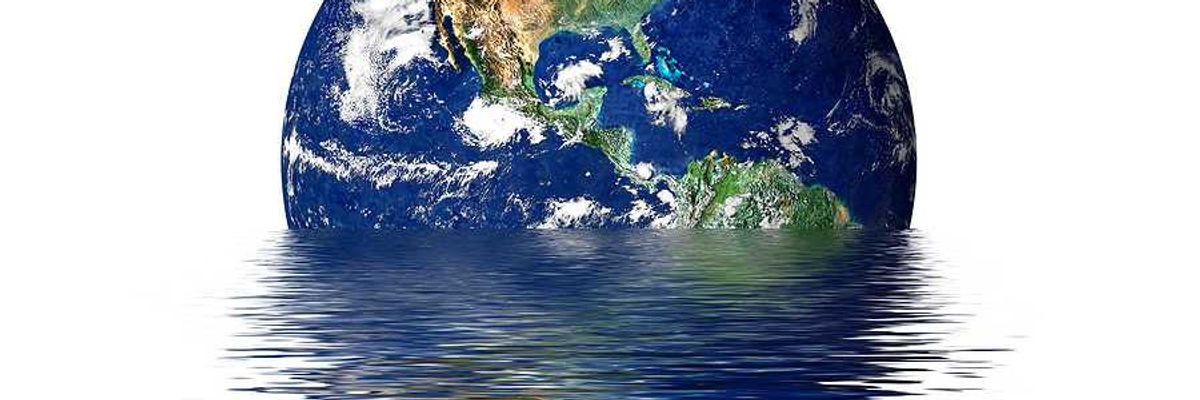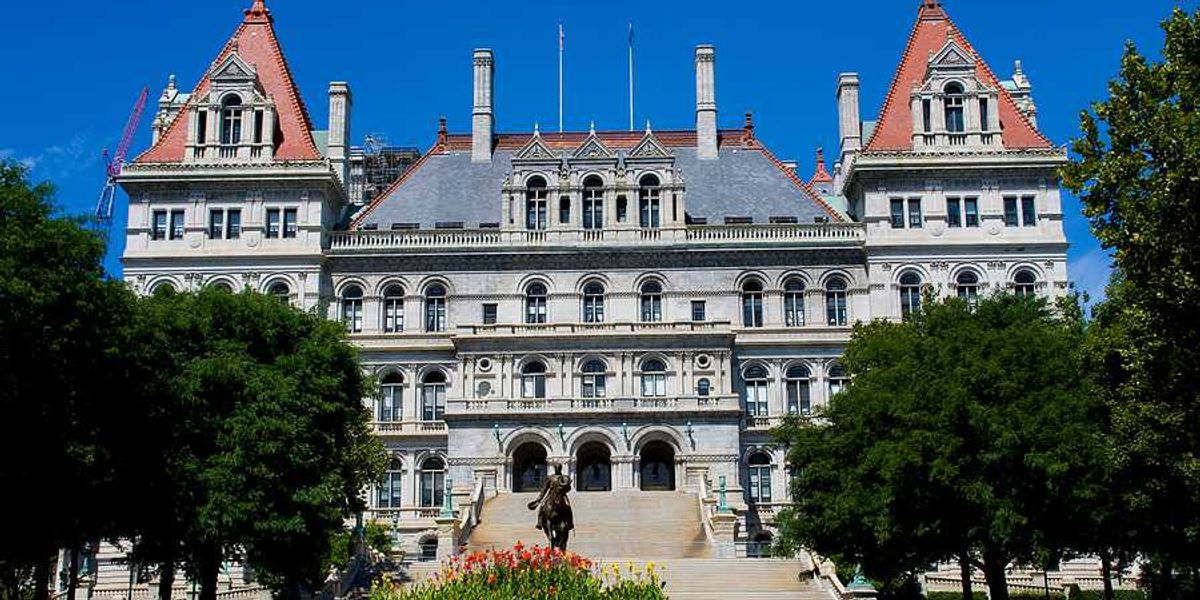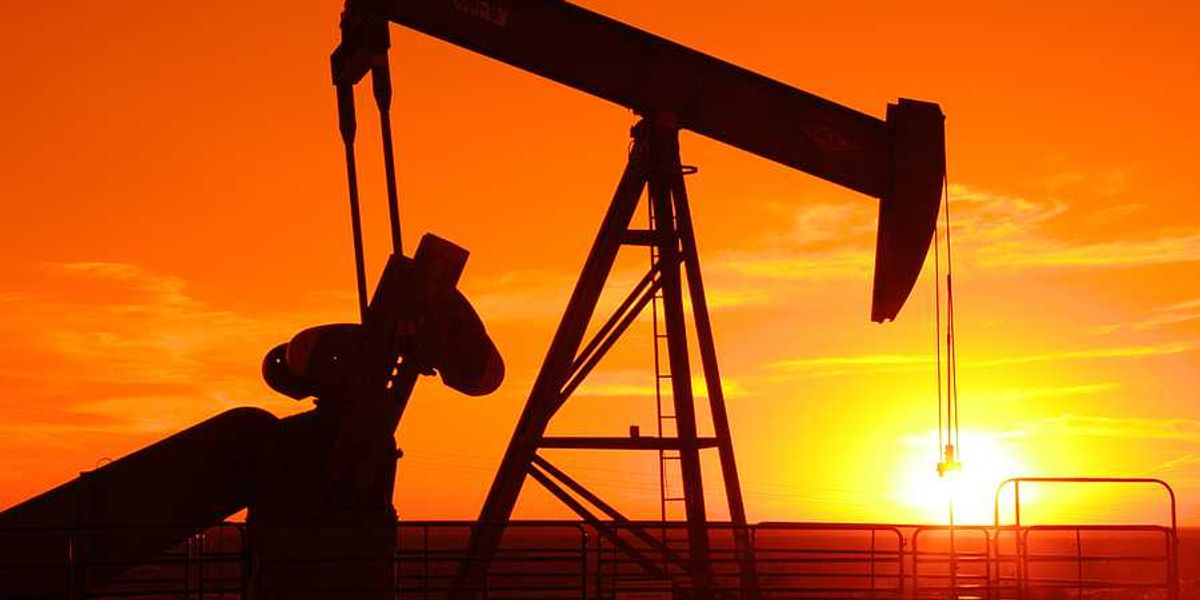disinfectants
The new soldiers in propane’s fight against climate action: television stars
At EPA, coronavirus disrupts research and raises questions over air quality impact
In Mr. Wheeler's view, no single event during his tenure has forced more change at the EPA than the coronavirus pandemic — and that includes the climate crisis.
E.P.A. threatens legal action against sellers of fake coronavirus cleaners
Warming oceans may make ‘Nemo’ harder to find.
Heat bleaches sea anemones, too, causing the iconic clownfish to stop laying eggs. Here’s how.
Like coral reefs, sea anemones—with their flashy, tentacle-like polyps that waggle and wave in vibrant reds, greens, pinks, and yellows—provide homes and hiding spots for dozens of fish species, most memorably the orange clownfish made famous in Finding Nemo. Also like coral, rising water temperatures associated with climate change can severely weaken these anemones, causing them to expel the tiny symbionts that keep them alive and lend them color, a process known as bleaching.
That, it turns out, is just where trouble starts.
When anemones bleach, Nemo and pals get stressed out and simply stop laying eggs, according to new research published Tuesday in the journal Nature Communications. And scientists suspect that pattern may hold for untold numbers of other fish nurtured by either corals or anemones.
In other words, the mere stress associated with bleaching may be enough by itself to drive down many fish populations.
And, of course, bleaching no longer happens by itself.
Scientists also working with baby clownfish already have shown that shifts in ocean chemistry as the seas absorb excess carbon-dioxide—a process known as ocean acidification—can be unusually deadly. It scrambles juvenile fishes' brains, hampering their ability to see, hear, and smell. All that causes confusion, often leading them to swim toward—rather than away from—predators. The end result: they die far more often.
While few if any longterm studies have yet looked at just how bleaching and acidification may work in concert, scientists say they certainly aren't likely to somehow cancel each other out.
"Both bleaching and acidification are really stressful events separately," says Danielle Dixson, with the University of Delaware's College of Earth, Ocean and Environment, who spent years researching clownfish and acidification, but wasn't part of the new bleaching study. "I can't imagine that when they both happen it's going to somehow be any less stressful." (Learn how breeding aquarium fish can help reefs.)
THE CRITICAL ROLE OF HORMONES
The most recent research began when an ocean heat wave washed across French Polynesia in 2015 and 2016. A team of scientists tracked 30 different species of anemones in a lagoon off the island of Moorea. That warmth didn't just cripple corals. For more than four months, it attacked and bleached roughly half of those sea anemones. So scientists sampled the fish living among these overheated anemones and compared them with fish living in healthy ones nearby.
The release of hormones is known to affect how everything from sea birds to marine iguanas weather the rapid upheaval associated with climate change. That's true for fish, too.
The team found that the creatures associated with bleached anemones were chronically stressed, showing high levels of cortisol in their blood, says study co-author Suzanne Mills, with the Center for Insular Research and Observatory of the Environment in French Polynesia. Reproductive hormones dropped in both males and females. Fish pairs from bleached anemones spawned less and ultimately produced far fewer viable young.
That could have longterm implications that could ripple through entire marine systems.
"The cascading effects of bleaching at the community and ecosystem levels will, and may have already, played an important role in population impacts," Mills says.
THE BIGGER PICTURE
Mills and her co-authors figured out that of 464 coastal fish species in French Polynesia, 56—about 12 percent—depend on species susceptible to bleaching for food or shelter from predators.
"If these species suffer even a fraction of the impact found for anemone fish, then a short-lived bleaching event could decrease the reproductive output of at least 12 percent of species," the study authors wrote. Ecosystem-wide impacts "may be considerable."
Dixson says Mills' findings are "really, really solid." And while they may not be terribly surprising to marine scientists, it should be an eye-opener for the public.
And, of course, that's only one part of the equation.
"Unfortunately, we're never going to have a world where the oceans are acidifying but not warming," Dixson says. "And all of the data suggests that won't be good."
The Great Barrier Reef can repair itself, with a little help from science.
At least two potential interventions show promise as means to boost climate resilience and tolerance in the reef’s corals: assisted gene flow and assisted evolution.
The Great Barrier Reef is suffering from recent unprecedented coral bleaching events. But the answer to part of its recovery could lie in the reef itself, with a little help.
In our recent article published in Nature Ecology & Evolution, we argue that at least two potential interventions show promise as means to boost climate resilience and tolerance in the reef’s corals: assisted gene flow and assisted evolution.
Both techniques use existing genetic material on the reef to breed hardier corals, and do not involve genetic engineering.
But why are such interventions needed? Can’t the reef simply repair itself?
Damage to the reef, so far
Coral bleaching in 2016 and 2017 took its biggest toll on the reef to date, with two-thirds of the world’s largest coral reef ecosystem impacted in these back-to-back events. The consequence was widespread damage.
Reducing greenhouse gas emissions will dampen coral bleaching risk in the long term, but will not prevent it. Even with strong action to tackle climate change, more warming is locked in.
So while emissions reductions are essential for the future of the reef, other actions are now also needed.
Even in the most optimistic future, reef-building corals need to become more resilient. Continued improvement of water quality, controlling Crown-of-Thorns Starfish, and managing no-take areas will all help.
But continued stress from climate change – in frequency and intensity – increasingly overwhelms the natural resilience despite the best conventional management efforts. Although natural processes of adaptation and acclimation are in play, they are unlikely to be fast enough to keep up with any rate of global warming.
So to boost the reef’s resilience in the face of climate change we need to consider new interventions - and urgently.
That’s why we believe assisted gene flow and assisted evolution could help the reef.
Delaying their development could mean that climate change degrades the reef beyond repair, and before we can save key species.
What is assisted gene flow?
The idea here is to move warm-adapted corals to cooler parts of the reef. Corals in the far north are naturally adapted to 1C to 2C higher summer temperatures than corals further south.
This means there is an opportunity to build resistance to future warming in corals in the south under strong climate change mitigation, or to decades of warming under weaker mitigation.
There is already natural genetic connectivity of coral populations across most of the reef. But the rate of larval flow from the warm north to the south is limited, partly because of the South Equatorial Current that flows west across the Pacific.
The South Equatorial Current splits into the north-flowing Gulf of Papua Current and south-flowing East Australian Current off the coast of north Queensland. This means coral larvae spawned in the warm north are often more likely to stay in the north.
So manually moving some of the northern corals south could help overcome that physical limitation of natural north-to-south larval flow. If enough corals could be moved it could help heat-damaged reefs recover faster with more heat-resistant coral stock.
We could start safe tests at a subset of well-chosen reefs to understand how warm-adapted populations can be spread to reefs further south.
What is assisted evolution?
While assisted gene flow may be effective for southern or recently degraded reefs, it will not be enough or feasible for all reefs or species. Here, we argue that assisted evolution could help.
Assisted evolution is artificial selection on steroids. It combines multiple approaches that target the coral host and its essential microbial symbionts.
These are aimed at producing a hardier coral without the use of genetic engineering. Experiments at the Australian Institute of Marine Science are already making progress, with results yet to be published.
First, evolution of algal symbionts in isolation from the coral host has been fast-tracked to resist higher levels of heat stress. When symbionts are made to reengage with the coral host, benefits to bleaching resistance are still small, but with more work we expect to see a hardier symbiosis.
Secondly, experiments have created new genetic diversity of corals through hybridisation and researchers have selected these artificially for increased climate resilience.
Natural hybridisation happens only occasionally on the reef, so this result gives us new options for climate hardening corals using existing genetic stocks.
The danger of doing nothing?
The right time to start any new intervention is when the risk of inaction is greater than the risk of action.
Assisted gene flow and assisted evolution represent manageable risk because they use genetic material already present on the reef. The interventions speed up naturally occurring processes and do not involve genetic engineering.
These interventions would not introduce or produce new species. Assisted gene flow would simply enhance the natural flow of warm-adapted corals into areas on the reef that desperately need more heat tolerance.
Risk of increasing the spread of diseases may also be low because most parts of the Reef are already interconnected. A full understanding of risks is an area of continued research.
These are just two examples of new tools that could help build climate resilience on the reef. Other interventions are developing and should be put on the table for open discussion.
*********************
Ken Anthony
Principal Research Scientist, Australian Institute of Marine Science
Britta Schaffelke
Research Program Leader - A Healthy and Sustainable Great Barrier Reef, Australian Institute of Marine Science
Line K Bay
Senior Research Scientist and Team Leader, Australian Institute of Marine Science
Madeleine van Oppen
Marine molecular ecologist, Australian Institute of Marine Science
Disclosure statement
Ken Anthony receives funding from the Australian Government, the Queensland Government and the Great Barrier Reef Foundation
Britta Schaffelke works for the Australian Institute of Marine Science, a publicly funded research organisation that receives funding from the Australian Government, State Government Departments, foundations and private industry.
Line Bay receives funding from the Australian Government through their National Environment Science Program .
Madeleine van Oppen receives funding from the Australian Research Council, The Paul G. Allen Foundation, the Great Barrier Reef Foundation, the Australian Institute of Marine Science.
The most powerful evidence climate scientists have of global warming.
The oceans hold the story of a planet warming as fossil fuels are burned. Here is what scientists have discovered, in four charts.
Earth's temperature is rising, and it isn't just in the air around us. More than 90 percent of the excess heat trapped by greenhouse gas emissions has been absorbed into the oceans that cover two-thirds of the planet's surface. Their temperature is rising, too, and it tells a story of how humans are changing the planet.
This accrued heat is "really the memory of past climate change," said Kevin Trenberth, the head of climate analysis at the National Center for Atmospheric Research and co-author of a new paper on ocean warming.
It's not just the amount of warming that is significant—it's also the pace.
The rate at which the oceans are heating up has nearly doubled since 1992, and that heat is reaching ever deeper waters, according to a recent study. At the same time, concentrations of carbon dioxide in the atmosphere have been rising.
The charts that follow show how the oceans are changing and what they're telling us as a thermometer of global warming.
Scientists say the accumulation of heat in the oceans is the strongest evidence of how fast Earth is warming due to heat-trapping gases released by the burning of fossil fuels.
Oceans have enormous capacity to hold heat. So ocean temperatures, unlike temperatures on land, are slow to fluctuate from natural forces, such as El Niño/La Niña patterns or volcanic eruptions. Think night and day, said Trenberth. As night falls on land, so do air temperatures. But in the oceans, temperatures vary little.
This makes it easier to tease out the influence of human-caused climate change from other possible causes of surging ocean heat.
How much extra heat are we talking about? And what are the impacts on the climate system? "On a day-to-day a basis, it's really quite small," Trenberth said, but the cumulative effects are not.
According to research by Trenberth and Lijing Cheng, of the Institute for Atmospheric Physics in Beijing, the heat storage in the oceans during 2015 and 2016 amounted to a stunning force: an increase of 30.4 X 1022 joules of energy roiling Earth's systems since 1960. The overload is helping throw off Earth's energy balance, needed for the climate to be relatively stable. Put another way: The excess energy amassed in the oceans since 1992 is roughly equivalent to 2,000 times U.S. electricity generation during the past decade, the researchers explained.
Ocean temperatures have been rising about 0.12 degrees Celsius per decade on average over the past 50 years. The higher temperatures are driving marine life toward the poles in search of livable habitats, bleaching coral reefs, and causing severe impacts on fisheries and aquacultures. They also contribute to more frequent and intense extreme weather events. In the three back-to-back deadly hurricanes of 2017—Harvey, Irma and Maria—warmer waters played a role in worsening the storms.
Though ocean temperature represents a clear signal of climate change, one challenge for researchers is that the record only goes back so far. Since the early 2000s, an international effort called Argo has launched nearly 4,000 ocean-going sensors that gather important data about the oceans, including temperature.
Meanwhile, as oceans heat up, thermal expansion causes sea levels that are already rising from the melting of land ice (triggered by higher air and sea temperatures) to rise even more. Nearly 50 percent of the sea level rise so far has come from ocean warming, according to new work by Cheng and Trenberth. Much of the rest comes from the melting of ice on Antarctica and Greenland.
Ocean warming can impact sea level rise in another way, too. This year has seen extensive losses from Antarctica's ice shelves. "It's most likely because that ice is being undermined through warmer ocean underneath the ice, which is contributing to the thinning of the ice and weakening of the shelf," Trenberth said. The ice shelves themselves are already floating, but they are attached to land and play a critical role in slowing the ocean-bound ice flow from the massive ice sheets behind them. Scientists say the West Antarctic Ice Sheet alone holds enough ice to raise global sea level by about 11 feet.
Grass-fed cows won’t save the climate, report finds.
Letting livestock graze doesn’t dramatically reduce greenhouse emissions.
By Jacquelyn TurnerOct. 2, 2017 , 9:00 PM
If you thought eating only “grass-fed” hamburgers could absolve you from climate change guilt, think again. There’s a lack of evidence that livestock (such as cattle, sheep, and goats) dining on grassland has a lower carbon footprint than that fed on grains, as some environmentalists and “pro-pastoralists” claim, according to a new report by the Food Climate Research Network, a group of independent scientists based at the University of Oxford in the United Kingdom.
“Switching to grass-fed beef and dairy does not solve the climate problem—only a reduction in consumption of livestock products will do that,” says one of the report’s authors, Pete Smith of the University of Aberdeen in the United Kingdom.
Livestock is responsible for 14.5% of global greenhouse emissions, researchers estimate. The animals emit gases such as nitrous oxide, carbon dioxide (CO2), and methane in amounts that have significantly changed our atmosphere. And the impact is growing. As more people worldwide are lifted out of poverty, many more can afford to eat meat regularly; global demand for animal products, now 14 grams per person per day, is expected to more than double by 2050.
Most modern-day cattle are raised on “landless systems,” also known as feedlots, where the cattle have little space, no access to pastures, and are fed a grain-based diet. Proponents of this system argue that it is an efficient way to produce meat that helps prevent conversion of forests and other ecosystems to pasture. But feedlot systems are notorious for producing hydrogen sulfide and polluting waterways with animal waste, ammonia, pathogens, and antibiotics. Moreover, some experts say, because ruminant stomachs evolved to eat grass, feeding them soy or corn results in more greenhouse gas emissions.
Letting ruminants graze is a better system, some argue. Plants take up CO2 through their leaves and, when they die, leave part of it in their roots, where it remains and is converted to other forms of life; that makes soil a giant carbon sink. But human activities such as deforestation and plowing have released much of the stored carbon, and “pro-pastoralists” suggest that grazing cattle can help restore grasslands and soil, sequestering massive amounts of CO2 in the process. The cows’ manure would also recycle nutrients such as nitrogen and phosphorous to the soil, encouraging the growth of new vegetation and sequestering even more carbon.
But the 127-page FCRN report released today, Grazed and Confused, says there is no evidence that grass-grazing cattle will make a difference. Grass-fed cattle do contribute to CO2 sequestration, the international group concluded after sifting through more than 100 papers—but only under ideal conditions. When too many animals roam a field, they will trample plants and soil and impede carbon storage; when it’s too wet, carbon uptake is impeded as well. And even under the best of conditions, carbon sequestration is not at levels high enough to counteract the ruminants’ own emissions, the report says.
The findings don't sway advocates of grazing. Richard Young of the Sustainable Food Trust in Bristol, U.K., says the report is too quick to dismiss the importance of grazing in some regions. “For me it’s very simple,” he says. “In countries like the U.K. and Ireland, and on rangelands where rainfall is too unreliable for much crop production, we should continue to encourage and make possible ruminant production.” Legislation and policy can help prevent overstocking, he says.
“Farming becomes sustainable when it looks like an ecosystem,” adds Richard Manning, the Helena, Montana–based author of Grassland: The History, Biology, Politics and Promise of the American Prairie. “It works when we mimic natural systems. And we have to include animals, because that’s what’s found in nature.” Manning says the report also ignores other services grasslands provide, such as absorbing flood water and filtering runoff. And as the report acknowledges, conventionally raised beef has other environmental issues, Manning points out, such as increasing the demand for grains, and therefore cropland.
In the end, the real solution is reducing global meat consumption, says Tim Benton, who studies sustainable agro-ecological systems at the University of Leeds in the United Kingdom. “Our ever-increasing demand for meat is driving the planet in an unsustainable direction,” Benton says. “No one farming system will fix it.”
Posted in: ClimatePlants & Animals
doi:10.1126/science.aaq1116









